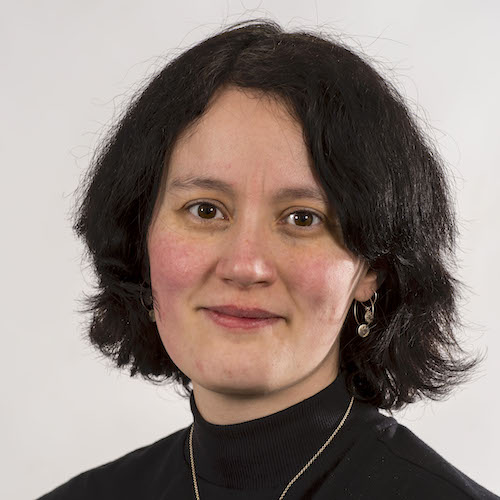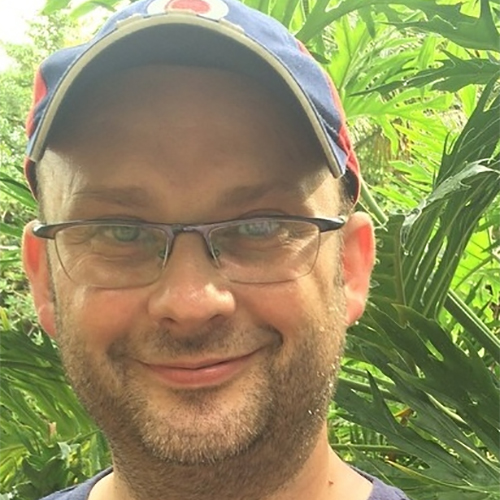| Name |
Research methodologies & approaches used |
Current PhD student topics |
| Professor Hannah Batchelor |
biopharmaceutics, dissolution, caco-2 cells, permeability, pharmaceutical oral dosage form manufacture and characterisation.
|
- understanding the impact of the gut lumenal conditions on tablet performance
- using advanced physiologically relevant dissolution testing to understand the performance of oral medicines
- generating biorelevant dissolution methods for special populations (eg paediatrics)
|
| Dr Cameron Brown |
pharmaceutical manufacturing (small molecule drug substance, crystallisation), process modelling, physics-based, data-driven and hybrid modelling approaches.
|
- material sparing approaches for the exploration of chemical space for optimum process development
|
| Dr Trevor Bushell |
calcium imaging, electrophysiology, immunofluorescence, molecular biology, behavioural testing.
|
- Is PAR2 activation neuroprotective in a mouse model of Alzheimer’s Disease
- Targeting astrocytes as a novel treatment for CNS disorders.
- Does astrocytic PAR2 contribute to major depressive disorder?
|
| Dr Susan Chalmers |
fluorescence imaging (live-cell) - mitochondrial dynamics & function; calcium signalling; immunofluorescence; image analysis & quantification.
|
- How does the Alzheimer's associated amyloid-beta affect mitochondrial dynamics & function in neurons & astrocytes?
- Does hyper- or hypo-glycaemia alter mitochondrial dynamics in cells of the CNS?
- Ketone-body metabolic supplementation: a potential neuroprotective strategy?
|
| Dr Luke Chamberlain |
a range of biochemical and cell biology approaches including: gel electrophoresis, immunoblotting, cell culture and transfection, click chemistry, confocal microscopy, inhibitor screening.
|
- Understanding how the attachment of lipid groups onto proteins affects their intracellular localisation, stability and function.
- Understanding how defects in protein lipidation cause disease.
- Identifying mechanisms underpinning substrate recognition by "ZDHHC" enzymes.
|
| Dr Hilary Carswell |
In vivo models of brain injury and behavioural testing, in vitro cell culture and stem cell biology, molecular biology, histology including immunofluorescence.
|
- improving stem cell function in stroke
- using biomaterials to improve stroke recovery
- immunomodulatory therapies in stroke
- exploring therapies that target the blood brain barrier and inflammation in stroke
- developing and improving in vitro models of stroke
|
| Dr Christine Dufès |
development of novel tumour-targeted nanomedicines for cancer therapy (synthesis and characterization of the nanomedicines, cell culture, flow cytometry, anti-proliferative assay, confocal microscopy, in vivo analysis)
|
- development of tumour-targeted drug and gene nanomedicines for cancer therapy
- development of non-viral CRISPR-Cas9 technologies
- tumour microenvironment-sensitive drug and gene delivery systems
- biomaterial-based immunotherapies
- development of novel hydrogels for biomedical applications
- brain-targeted drug and gene delivery systems
|
| Dr Ru Angelie Edrada-Ebel |
Natural Products Metabolomics, Co-culture applications on Marine Biotechnology, NMR Spectroscopy, Mass Spectrometry, High-throughput Chromatography, application of multivariate analysis on fused spectral data.
|
- understanding the effects of cocultures on microbial symbionts to elicit the production of new antibiofilms and antibiofoulants
- algal endophytes on biofilms and biofoulants
- multivariate analysis of fused spectral datasets to model metabolite production in various ecological conditions
|
| Dr Hui-Rong Jiang |
in vivo models of neuroinflammation (multiple sclerosis and Alzheimer's disease), cell culture, molecular biology, immunoassays, immunohistochemical staining and imaging, application of nanoclusters
|
- understanding neuroinflammation in neurodegenerative disease
- developing novel therapies for Alzheimer's disease using lysozyme encapsulated nanoclusters
- role of immune molecules in cancer development
|
| Dr Amanj Kurdi |
clinical pharmacy, pharmacoepidemiology, pharmacy practice |
- application of pharmacoepidemiological approaches to investigate the utilisation pattern
- clinical effectiveness
- safety of the novel medications used in the management of cardiovascular diseases
|
| Dr Helina Marshall |
bacteriology, Immunology, flow cytometry, molecular biology, microscopy, cell-based assays
|
- understanding the immune evasion mechanisms of atypical emerging strains of Salmonella and how they are continuing to adapt to their host
- determining the mechanisms of differential virulence of related species of Streptococcus, and aiming to understand what makes a pathogen
|
| Professor Gail McConnell |
optical microscopy and mesoscopy development, applications of new imaging technologies to cell biology and medicine
|
- resolving the role of microbial pathogens in the failure of voice prosthetic devices
- quantification of immune markers in tonsillar diseases
- label-free intraoperative histological imaging
- super-resolution optical mesoscopy
- understanding the ultrastructure of mature colony biofilms
|
| Dr Iain Oswald |
diffraction and spectroscopic methodologies under various thermodynamic regimes to explore the solid-state properties of active pharmaceutical ingredients.
|
- linking molecular structure to mechanical properties of pharmaceutical materials
|
| Professor Yvonne Perrie |
drug delivery, delivery of drugs and vaccines, liposomes, nanoparticles
|
- development of novel particulate delivery systems for mRNA therapies
- enhancing microfluidic manufacturing processes for nanoparticles
- developing novel subunit vaccine formulations
|
| Dr Leighton Pritchard |
computational biology, bioinformatics, systems biology, microbial genomics
|
|
| Dr Nicholas JW Rattray |
metabolomics, proteomics, hyphenated mass spectrometry, biogerontology (biochemistry of ageing), clinical trails, clinical sample handling, biobanking, chemometrics, AI and deep learning
|
- developing novel multiparametric measures of ageing in clinical/biomolecular biobank data
- determining new mass spectrometry methods of mitochondrial screening
- translating biomolecular signatures of frailty into clinically relevant biomarkers
|
| Dr Zahra Rattray |
biologicals, nanomedicine, cell-based assays, advanced metrology techniques, cell culture, immunoblotting, imaging and image analysis
|
- understanding how lipid chemistry alters lipid nanoparticle critical quality attributes and their in vitro behaviour
- understanding the phenotypic properties of breast cancer cells with Karyopherin alpha 2 knockdown
- understanding the immunometabolic profile of immune cells in response to nanomaterials
|
| Dr Shuzo Sakata |
in vivo electrophysiology (including Neuropixels), fibre photometry, optogenetics, chemogenetics, viral-based gene delivery, deep learning
|
- sleep-stage-dependent functions of pontine waves
- REM sleep regulation by pontine neuron-astrocyte interactions
- optical detection of Alzheimer's pathology in vivo
- deficits in experience-dependent sharp-wave ripples in an Alzheimer's mouse model
|
| Dr Veronique Seidel |
molecular docking, molecular dynamics, cell-based assays, chromatography and spectroscopy techniques applied to natural products research
|
- studies on the role of medicinal plant extracts and compounds in skin health using in silico and in vitro screening
|
| Dr Lian Tian |
in vivo animal experiments, ex vivo tissue measurement, in vitro cell culture and biological approaches
|
- Novel therapies targeting the right ventricle in pulmonary arterial hypertension
|
| Dr Martin Wiese |
molecular parasitology and biochemistry, leishmania protein kinases
|
- CRISPR-Cas9
- molecular biology
- protein biochemistry
- cell biology
- microscopy
- proximity labelling (BioID).
|









